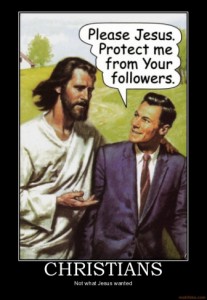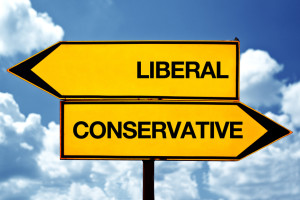 Words have a habit of subtly changing their meaning over relatively short periods of time. This may come about as fashions change, or an attitude in society moves in a particular direction. One of the words that has changed its meaning, causing sadness for many of us, is the word ‘Christian’. A few years ago the word meant a decent honest reliable person, someone anybody could do business with. Today the word, sadly, has become associated for many with a set of right wing attitudes, authoritarianism, homophobia and smug superiority. Worse, the word has, in some cases, come to be associated in some people’s minds with acts of betrayal towards others, like paedophilia and discrimination against women. For the time being, at any rate, the Church of England and other mainstream church communities still retains some of the good-will that it has built up over the centuries in society. It remains to be seen if this broadly benevolent attitude towards the C of E is continued as the parish system increasingly lurches towards being, not an institution serving the whole community, but a sect-like gathering for the religiously like-minded. Will the word ‘church’ come eventually to acquire negative connotations as seems to have happened to the word Christian?
Words have a habit of subtly changing their meaning over relatively short periods of time. This may come about as fashions change, or an attitude in society moves in a particular direction. One of the words that has changed its meaning, causing sadness for many of us, is the word ‘Christian’. A few years ago the word meant a decent honest reliable person, someone anybody could do business with. Today the word, sadly, has become associated for many with a set of right wing attitudes, authoritarianism, homophobia and smug superiority. Worse, the word has, in some cases, come to be associated in some people’s minds with acts of betrayal towards others, like paedophilia and discrimination against women. For the time being, at any rate, the Church of England and other mainstream church communities still retains some of the good-will that it has built up over the centuries in society. It remains to be seen if this broadly benevolent attitude towards the C of E is continued as the parish system increasingly lurches towards being, not an institution serving the whole community, but a sect-like gathering for the religiously like-minded. Will the word ‘church’ come eventually to acquire negative connotations as seems to have happened to the word Christian?
I may have told the story about a pious family in my parish whose small son died as a baby. They were not members of my congregation but I still knew them quite well as members of the community. The mother took over the organising the funeral for the child but the whole process was delayed while she made frantic phone-calls to discover who was a ‘Christian’ undertaker. None of our local undertakers was considered Christian according to her sectarian definition, so eventually the ceremony was organised by a firm some fifty miles away. I was certainly unable to offer suggestions in this search. This idea that only some businesses are wholesome because they have people who are, not only members of churches, but also the right kind of churches, is quite widespread among some congregations. I have, from time to time, been told that I am not a proper Christian because a) I read the Bible in a different way from ‘true’ Christians and b) I do not ‘preach the gospel’ (not every sermon calls for repentance). This accusation has left me puzzled. Should I be upset that my beliefs and Christian priorities are considered beyond the pale, or should I be relieved that I am not expected to fit into the straight-jacket of increasingly sectarian expressions of the Christian faith? I cannot, in fact, be the only clergyman whose words and writings are scrutinised to see whether they conform to one or other of the Protestant articulations of the Christian faith. To say that this kind of scrutiny is not an irritant and indeed an undermining of morale, would be to downplay the situation. From the perspective of retirement I can see fairly clearly what was going on. I was observing a trend among individuals and congregations to understand the Christian faith in an increasingly polarised way. This is all part of the binary thinking we have discussed before. You are either in the fold or outside it. There is only black or white with no possibility of grey.
The more that ‘binary’ Christians see themselves as apart and distinct from others, whether Christian or not, the more that the bulk of society will become estranged from the word ‘Christian’ and move towards finding the word offensive. The good-will I spoke of above, which has been built up over centuries of hard-working service towards the poor and the sick, could be dissipated in a couple of generations. The ordinary member of the public when encountering the word ‘Christian’ will think not of selfless service of others but of bigotry and exclusion. Certain words from the Bible appear to support the desire of sectarian Christians to alienate and antagonise others, particularly the passage at the end of the Beatitudes: ‘Blessed are you when men revile you and persecute you and utter all kinds of evil against you falsely on my account’. For some Christian groups, this appears to give them permission to irritate, upset and generally fall out with others outside their group whether Christian or secular. It is a mark of honour among many cultic groups to receive the disapproval of others. There is the psychological fact that groups under attack will draw closer together, but also the group convinces itself that truth and goodness will always be under threat of attack because that was the calling of Jesus.
The words in Matthew immediately after the quote made from chapter 5 give a somewhat different perspective on the Christian relationship to the world. Jesus tells his disciples that they are to be salt and light ‘of the world’. I draw attention to the preposition ‘of’, because it is significant that Jesus does not talk about the light and the salt being somehow separate and being introduced to it. Salt and light are already part of what the world consists of. Christians are to be those who reveal what is already there but may have been buried or hidden. I find the idea that Christians are helping to uncover what is already there in the world a far better description of mission, than the idea that the world is totally corrupt and ignorant. Our Christian ancestors in Britain have been working away at bringing light and understanding to many areas of society – hospitals, schools, care of the disabled, the poor and even into politics. I still find it a matter of comment that it is politicians that have seen the justice and rightness of extending marriage to the gay population in the teeth of opposition from many Christians. We are not far off from sending a clear message to society that a Christian is defined by his or her attitude to gay sex. So often we have heard earnest Christians in legal cases saying that their ‘faith’ forbids them acting generously towards a gay couple. How long will it be before this kind of attitude becomes fixed in people’s minds? Are we really to live in a world where the word ‘Christian’ means an intolerant bigot? Can the rest of us, who care for the values of tolerance and generosity to those who are minorities in thought or action, reclaim the word Christian? It will take a lot of work and effort for Christians once again to imply that we are followers of Jesus in his attitude to the poor, the weak, the oppressed and minorities. This blog is one small effort in holding up a flag to reclaim for the Christian faith the values of generosity and acceptance of others even when they are not like us.
